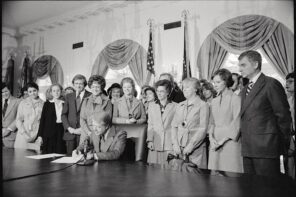According to one common reaction to Burwell v. Hobby Lobby, the Court set a precedent in nonsense by supposing that a corporation—an artificial legal construct—could engage in an exercise of religion. To imagine so, on this view, is to commit what the philosopher Gilbert Ryle called a category mistake: corporations simply are not the kind of thing that either could enjoy, or be prevented from enjoying, religious freedom.
But of course, the United States is already home to many thousands of corporations that enjoy a form of religious freedom. In the terms of section 501(c)(3) of the Internal Revenue Code, these corporations are called “churches,” their “integrated auxiliaries,” and “conventions or associations of churches,” where churches are defined as a “subset of IRC 501(c)(3) organizations organized and operated for religious purposes.” Necessarily, such entities are artificial or fictive persons under the law, subjects capable of claiming rights and bearing responsibilities distinct from those of the natural persons who comprise them.
The idea of corporate personhood was a radical and revolutionary notion—in the late 11th century, that is, as documented in Harold Berman’s 1983 landmark book, Law and Revolution: The Roots of the Western Legal Tradition. Without the legal device of a self-regulating association relatively insulated from arbitrary state power—be it guild, school, or church—our civilization would be unrecognizable.
Amanda Porterfield, a professor of religion and history at Florida State University, observes at The Immanent Frame that although Americans are profoundly divided “over the extent to which corporate bodies should be free to govern themselves, these bodies are so essential to the organization of our social world that few people seriously argue that they should not exist, or not enjoy some degree of freedom.”
Americans often look to corporate organizations both religious and commercial for their own development as individuals, as well as for social belonging. Much of the freedom Americans enjoy as individuals has evolved in relation to the freedom enjoyed by their corporate organizations, mediated by constraints imposed on those organizations by federal and state governments.
As documented in a 2011 article in the NYU Law Review by Darrell Miller, for-profit corporations already possess an impressive list of constitutional rights: some First Amendment free speech and press rights; some rights of expressive association; Fourth Amendment rights against unreasonable searches; Fifth Amendment rights against double jeopardy and takings; Sixth Amendment rights to trial by jury and to counsel; Fourteenth Amendment rights to equal protection and procedural due process; among others. (Miller wonders, unsettlingly, why not Second Amendment rights, too?)
Having set aside the liberal line that corporations categorically lack rights because they are not natural persons, we must ask, why not religious freedom?
Indeed, Justice Ginsburg’s dissent approvingly cites a series of decisions recognizing that the First Amendment’s free exercise protections “shelter churches and other nonprofit religion-based organizations.” The line she draws in order to resist the majority’s reading of RFRA is not between natural and corporate persons but between corporate persons that are “religious” and those that are not.
In the end, Porterfield obscures this distinction. She notes that from a historical perspective, “it is easy to see why corporations have freedom in the United States.” She then concludes that “whether we label this freedom ‘religious’ or ‘political’ is almost beside the point.” Yet it is directly on point to ask why some organizations but not others are permitted to violate the law. It is directly on point to consider whether Hobby Lobby and Conestoga Wood would have been granted status as “persons” under something called the Political Freedom Restoration Act.
RD contributing editor Austin Dacey will be writing a series of posts in the coming months as part of a joint project between The Immanent Frame and Religion Dispatches made possible by the generosity of the Luce Foundation.




